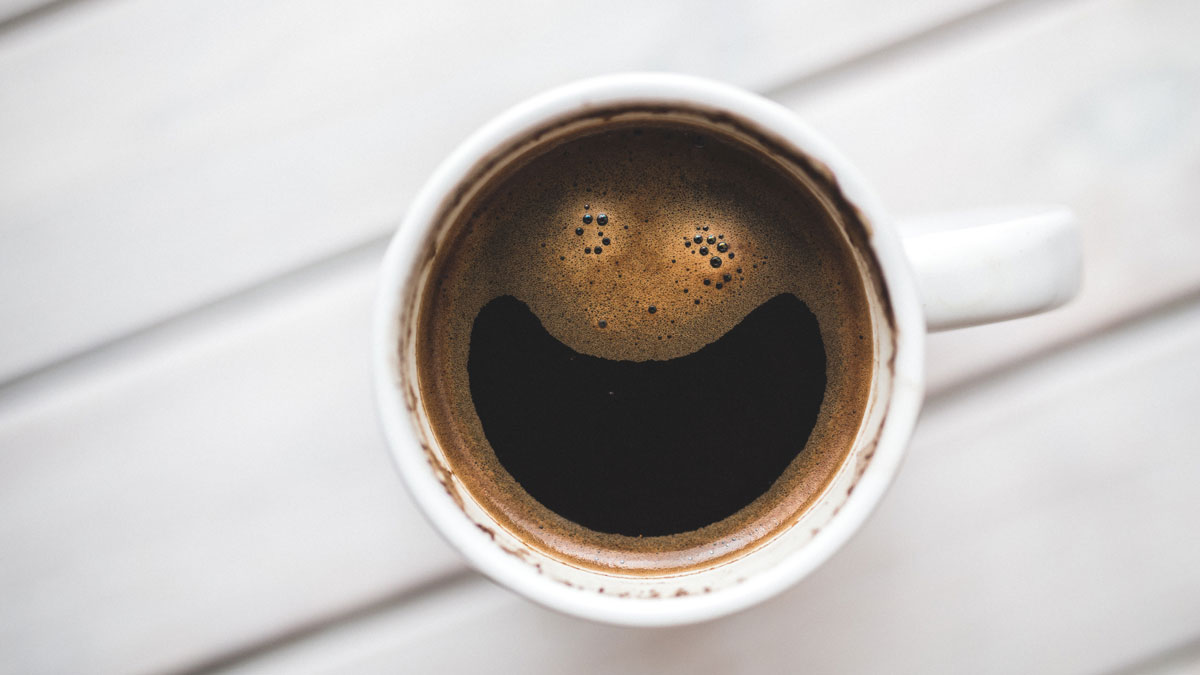
For many people, it’s unimaginable to start their day without a cup of coffee. It’s a ritual, a tradition, and a necessity believed to define their day. Yet, coffee is much more than a morning kick-off.
Drinking coffee is a custom that leads to socialization and forming relationships on a personal and professional level. As a cultural phenomenon, coffee is present in all aspects of human life. Even those who don’t drink this popular beverage also use a saying “Let’s grab some coffee” when making plans to meet with someone.
The science behind it all is supportive but cautious. While over the years you may have heard that coffee can negatively affect your wellbeing, today’s research adds one huge ‘unless’ after that claim. Just like with everything else in life, it’s all about moderation and the proper approach. So, for all those coffee lovers, here are healthy coffee drinking habits that will put your mind at ease.
What is coffee
Before it becomes a drink, coffee is a plant. This tree can grow 30 feet tall, but that hardly happens since it’s pruned for a better harvest. The familiar beans grow inside a fruit of this tree known as a coffee cherry. To put it all in some perspective, to get two pounds of beans, you will need at least 10 pounds of coffee cherries. If the conditions are right, a coffee tree can give fruit all year round so it’s not uncommon to see ripe and green fruits along with flowers on a plant at the same time.
While there are 25 to 100 of coffee species, the two most commercially important ones are Robusta and Arabica. Around eighty countries in the world grow coffee, scattered over the Caribbean, Africa, Asia, and South and Central America. Arabica is the most cultivated variety, taking up three-quarters of the global production. Although Brazil is the largest exporter of coffee, Vietnam has the biggest Robusta production.
How it all began
In order to become the popular drink we all know, coffee beans are roasted and grounded in different ways to accommodate various preparations. This is not something that contemporary society came up with. It’s believed that the history of coffee began in Ethiopia. A shepherd from 700 AD noticed that his goats are acting strange like they were dancing. After a while, he discovered that red-berried the goats were eating are the reason for their abnormal behavior.
Astonished about his finding, he confided to a monk about this plant who thought it could be useful to help him stay awake all night for prayer. There is a different twist to this legend, however. It’s believed that once the monk heard of such a fruit, he wasn’t impressed with its effect and threw it into the fire. As the coffee cherries roasted they released the pleasing aroma that made the monk change his mind.
The coffee road
The legend of the shepherd is just that — a nice story unsupported by evidence. Be that as it may, there is some truth to this origin tale and that’s that coffee came from Ethiopia. In the 15th century, the beans reached Yemen’s port of Mocha which soon enough became another name for coffee, used even today. From then on, coffee’s popularity grew and spread to Egypt, Turkey, and Persia.
In Arabia, Schools of the Wise started showing up which were a different name for coffee houses. This is where you came to hear the latest gossip and become a socialite. The stimulating effect quickly gained negative attention and authorities of Mecca, Cairo, and even Ethiopia banned its use. Because of the riots in the streets, these bans were lifted and the coffee, once again, goes to other parts of the world.
The beverage of today
Growing coffee in Europe was not that successful because of the unfavorable weather conditions for cultivation. This didn’t stop the importing of these beans or investment by the Europeans in its cultivation in other parts of the world, namely Java.
After some passing disapproval by Pope Clement VIII, the coffee finally found its place in the Christian world. The very same Pope baptized this beverage in the early 17th century and soon enough coffee houses appeared throughout Europe and later in the colonized world, like the Americas and Australia. After the Boston Tea Party in 1773, the coffee took over the USA.
Today, coffee is everywhere. It can be brewed, prepared, and consumed in various ways. It’s used in food, agriculture, and even beauty products. In so many ways, it has changed the world and will certainly continue to do so in the future. Because of this, coffee has been the subject of many speculations, theories, and claims. Thankfully, science also wanted to have its say about this beverage and its significance for human health and now we know all about the proper way to have coffee.
Insight in healthy coffee drinking habits
Some medical conditions may indeed limit the number of cups you can have per day, but that doesn’t mean you have to stop drinking coffee. If you respect the following recommendations, coffee may even help you feel better and healthier.
- Avoid coffee before bedtime
Everyone goes to bed at different hours so when you will have your last coffee greatly depends on that. Avoid having coffee at least a couple of hours before bedtime and even more if you generally have trouble falling asleep. Caffeine promotes wakefulness and you may deprive yourself of a good night’s sleep. If you have a craving for coffee, try decaffeinated options to prevent drinking too much, or too late.
- No artificial creamers
Artificial creamers may not have the best ingredients for your health so replacing them with milk-based products. They are a great source of calcium and vitamin K, both important for strong and healthy bones. Those being careful about their calorie intake should opt for plain black coffee or switch to low-fat milk.
- Think about the quality
You shouldn’t buy just any coffee, but choose the best quality you can afford. Some producers spray their beans with pesticides or other chemicals that may be harmful to your health when consumed. Organic beans are always a good choice, although they will cost you a little extra.
- Be moderate
Having one too many cups of coffee can negatively affect your health. Some of the side effects may include increased heart rate, high blood pressure, sleep disorder, and anxiety — all caused by too much caffeine. A person weighing 176 pounds or 80 kg should not drink more than two cups per day. However, the way you will react to going over this recommended amount depends solely on you since every person reacts differently to the caffeine intake.
- Store the coffee right
If you want your coffee to preserve its freshness and aroma, you need to store it properly. An air-tight container is appropriate for both beans and coffee grounds. While you should place the container in a dark, dry, and cool spot, don’t put it in the refrigerator or freezer. Clear containers should be sheltered from heat and light and are most commonly kept in the cupboard.
- Brew it the right way
The right way to brew your coffee is the one that will give you the taste you like. The newest research recommends drinking filtered coffee to live longer. This doesn’t mean you can enjoy occasional coffee made in the Turkish or Greek brewing methods, or with the cafetière and French press. Chemicals found in unfiltered coffee — cafestol and kahweol can raise the levels of triglyceride and LDL cholesterol, giving you a higher risk of cardiovascular disease.
- Don’t get carried away with mixing
With so many ways to make coffee, it’s easy to get lost in various recipes and go overboard with calories. Some coffee drinks use ice cream, cream, sprinkles, chocolate chips, and flavored syrups that can turn this beverage into a treat. Some of the ingredients can be artificial and harmful to your health, as certain types of preservatives that have cancerogenic properties.
- Always clean your equipment
A coffee pot is like any other dish — it needs regular cleaning. Most devices don’t require a wash more than once a week, and some even can go in the dishwasher. Drip brew coffee maker is a little more complicated and you will have to wash each removable part separately. Run a mixture of white vinegar and water through the machine to remove mineral buildup so your device would last longer.
- Make a fresh pot
Old coffee that has been on your desk for hours or a day is not good for drinking. While it’s far from toxic, sometimes it can disturb the acid in your stomach making you sick and nauseous. This happens because of the higher acidity in the stale coffee and even reheating it won’t help. Keeping coffee in the refrigerator may make it better especially if you add milk, cream, and other delicious ingredients for ice beverages. However, always make a fresh pot for yourself. It takes a couple of minutes and you will get a full-flavored drink that can warm you up.
- Cut drinking coffee in half while pregnant
Pregnancy requires putting aside some old habits and embracing new, healthier ones. While you don’t have to stop drinking coffee completely during pregnancy, it’s recommended to cut down the intake. Caffeine’s half-life tends to double in pregnancy meaning that you will experience the effects as though you had more cups than usual. Just as it’s unhealthy for you, the increased amount of caffeine can be bad for the baby and lead to problems during birth.
- Know when it’s coffee time
While drinking coffee first thing in the morning may be your initial impulse, it’s better not to have it on an empty stomach. Coffee machine for hire is a normal practice in companies today since employers recognized the significance of this beverage on employees’ work. To program your body for optimum performance at work, you should have coffee between 9.30 and 11.30 AM, as well as from 1.30 to 5 PM. This will give you a nice boost in productivity and help you stay focused throughout the day.
- Cut down sugar in your coffee
Coffee is predominantly bitter so some people like to have it with sugar. Adding sugar can seriously impair your health by leading to serious conditions, like diabetes and obesity. If you can’t take your coffee without it, then switch to natural sweeteners, like stevia. By infusing your coffee with sugar, you are taking away all its benefits and piling up the bad ones in the process. Not to mention that sweetening your cup of joe can change the flavor balance and hinder its true notes.
- Try coffee with cinnamon
You probably noticed that a lot of people use cinnamon in their coffee. This is because it can enrich the flavor of coffee, as well as bring some health benefits along the way. Based on one study, type 2 diabetes patients experienced improvement of glucose and lipid values when using cinnamon. Just a sprinkle is enough to make your coffee healthier and tastier.
- Add cocoa
Cocoa is one of the best ingredients you can put in your coffee. It adds a chocolate flavor that is perfect for those who still didn’t get used to the bitterness of coffee. Since cocoa is a known antioxidant, you will also get a whole range of health benefits, most notably the ones reducing the risk of heart diseases.
As a conclusion
Coffee builds relationships, friendships, economies, and societies. It’s hard to imagine life without this popular drink and you wouldn’t have to if you respect healthy coffee drinking habits. Proper brewing, quality beans, and a reasonable number of cups per day are crucial to feel great because of coffee. For new and interesting tastes, add cocoa or cinnamon, and cut back the sugar. You will discover an exciting world of different coffee flavors and styles.













 Deering Estate
Deering Estate
 Massage Envy South Miami
Massage Envy South Miami
 Calla Blow Dry
Calla Blow Dry
 My Derma Clinic
My Derma Clinic
 Sushi Maki
Sushi Maki
 Sports Grill
Sports Grill
 The Healthy Kitchen
The Healthy Kitchen
 Golden Rule Seafood
Golden Rule Seafood
 Malanga Cuban Café
Malanga Cuban Café

 Kathleen Ballard
Kathleen Ballard
 Panter, Panter & Sampedro
Panter, Panter & Sampedro
 Vintage Liquors
Vintage Liquors
 The Dog from Ipanema
The Dog from Ipanema
 Rubinstein Family Chiropractic
Rubinstein Family Chiropractic
 Your Pet’s Best
Your Pet’s Best
 Indigo Republic
Indigo Republic




 ATR Luxury Homes
ATR Luxury Homes


 2112 Design Studio
2112 Design Studio
 Hamilton Fox & Company
Hamilton Fox & Company
 Creative Design Services
Creative Design Services
 Best Pest Professionals
Best Pest Professionals
 HD Tree Services
HD Tree Services
 Trinity Air Conditioning Company
Trinity Air Conditioning Company
 Cisca Construction & Development
Cisca Construction & Development
 Mosquito Joe
Mosquito Joe
 Cutler Bay Solar Solutions
Cutler Bay Solar Solutions


 Miami Royal Ballet & Dance
Miami Royal Ballet & Dance
 Christopher Columbus
Christopher Columbus
 Pineview Preschools
Pineview Preschools
 Westminster
Westminster
 Carrollton
Carrollton
 Lil’ Jungle
Lil’ Jungle
 Frost Science Museum
Frost Science Museum
 Palmer Trinity School
Palmer Trinity School
 South Florida Music
South Florida Music
 Pinecrest Orthodontics
Pinecrest Orthodontics
 Dr. Bob Pediatric Dentist
Dr. Bob Pediatric Dentist
 d.pediatrics
d.pediatrics
 South Miami Women’s Health
South Miami Women’s Health

 The Spot Barbershop
The Spot Barbershop
 My Derma Clinic
My Derma Clinic




 Miami Dance Project
Miami Dance Project

 Rubinstein Family Chiropractic
Rubinstein Family Chiropractic
 Indigo Republic
Indigo Republic

 Safes Universe
Safes Universe
 Vintage Liquors
Vintage Liquors
 Evenings Delight
Evenings Delight





 Atchana’s Homegrown Thai
Atchana’s Homegrown Thai
 Baptist Health South Florida
Baptist Health South Florida

 Laser Eye Center of Miami
Laser Eye Center of Miami
 Visiting Angels
Visiting Angels
 OpusCare of South Florida
OpusCare of South Florida

 Your Pet’s Best
Your Pet’s Best





 HD Tree Services
HD Tree Services
 Hamilton Fox & Company
Hamilton Fox & Company


 Creative Design Services
Creative Design Services